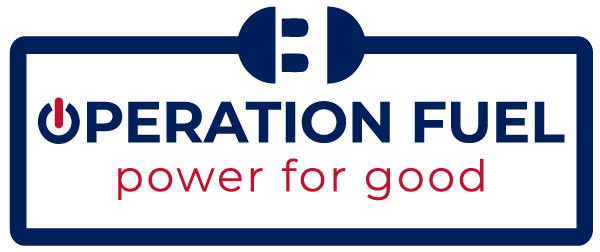Testimony from Operation Fuel Policy & Public Affairs Director Gannon Long, March 2022.
Chairs Rep. Arconti, Sen. Needleman; Ranking Members Rep. Ferraro, Sen. Formica,
Thank you for the opportunity to testify in favor of Raised Bill 176, AAC Shared Clean Energy Facilities. Operation Fuel supports the bill. We appreciate the ongoing work of this committee to grow
CT’s clean energy industries, and to provide low-cost renewable power to residents, municipalities, non profits, and small businesses throughout the state.
Operation Fuel provides utility and energy bill assistance to low- and moderate-income residents of CT who struggle to pay CT’s high and rising energy bills. Our online application is available online here. Operation Fuel works closely with the Energy Efficiency Board, Green Bank, and Neighborhood Housing Services on weatherization, efficiency, clean energy, and storage programs. We joined the SCEF dockets at PURA, and are partnering with the utilities to qualify subscribers for the program. Operation Fuel appreciates the work of this committee, the Authority, DEEP, the utilities, developers, advocates, and other stakeholders to increase access to clean energy for residents as quickly as possible. Energy affordability remains a serious challenge in CT, and increased access to clean energy through ratepayer centered programs is a key component of addressing this crisis.
There are several important aspects of this bill that we ask the committee to endorse. Broadly, we support increasing caps for solar projects that would expand access to clean energy for CT residents, which the bill includes. We ask the committee to consider increasing the program caps beyond the current language, for both specific projects and the program overall. Additionally, we are glad to see the bill include rolling over MWs that aren’t used in a program year. This is a common sense approach to increase access and expand capacity over time. We also appreciate that the bill removes caps for solar deployment on rooftops, this is an important way for facilities to capture the benefits of solar. Finally, we believe it is crucial that the state identifies as “Distressed Municipalities” (DECD) and/or “Environmental Justice Communities” (DEEP) be centered in program development. In addition to hosting facilities as the bill requires, residents of these communities should also be prioritized for access to the energy. Low-income communities hosting a development for others to use, profit, and benefit from would not be equitable.
We would like to see more attention to Virtual Net Metering, perhaps in this bill or in another. Virtual net metering allows solar customers to closely monitor their energy production and needs. When they are producing excess energy, they can sell it back – earning revenue and stabilizing grid reliability. VNM is a way to further incentivize energy efficiency and strengthen the grid. We hope the committee can find more ways to expand and accelerate VNM through this bill and other means. This would especially be beneficial for municipalities and service organizations that could offer credits, services, or offsets to residents and clients as well.
The area of the bill where we do have concerns is Section 4, which would allow Electricity Distribution Companies to own solar generation. CT does not allow EDCs to own power generation for
other fuel sources. Their primary role is to distribute energy. We believe this responsibility is important and deserves the companies’ full attention. The performance-based regulation law designed to improve EDC performance demonstrates they have room to improve in this space. We are concerned that the EDCs vertically integrating solar into their monopolies would not benefit ratepayers. We look forward to listening to further explanation and examination of this provision. Overall, we ask you to support passage of RSB176, and thank you for your important work expanding clean energy in our state.
